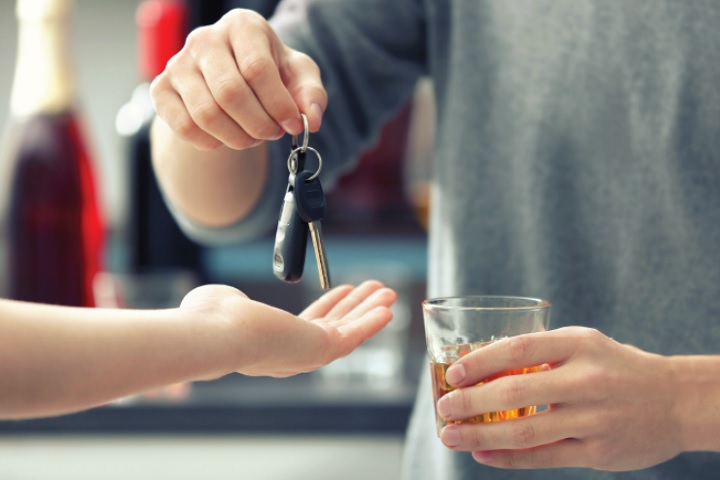
A zero-tolerance drink-driving limit could help prevent up to 5,000 alcohol-related road deaths a year in the EU, a new report has concluded.
The report, published by the European Transport Safety Council (ETSC) on 11 December, challenges the EU and its member states to come up with a vision to end drink-driving – including lower limits.
At present, only seven out of 28 EU countries have a drink-drive limit of 20mg per 100ml of blood or lower – which the report labels as ‘effectively equivalent to zero tolerance’.
The majority (19 countries) – including Scotland – have a limit of 50mg, while the rest of the UK currently has the highest limit at 80mg.
The report says every individual responds differently to alcohol – adding that the drink-drive limit should be the same for ‘everyone, everywhere’.
The ETSC is also calling on the EU to mandate the use of alcohol interlock devices in professional vehicles – such as lorries, coaches and vans – as well as requiring their use by repeat and high-level offenders.
New EU legislation agreed earlier this year will require all new vehicles from 2022 to be capable of being fitted with an alcohol interlock.
The UK Government has confirmed the standards will apply in the UK, whatever the outcome of Brexit.
Ellen Townsend, policy director of ETSC, said: “Almost 70 years since the first scientific evidence was published on the link between drink-driving and road deaths – it is impossible to accept that thousands of families are still being ripped apart every year in the EU because of it.
“In 2020, we want to see the EU and member states coming up with a vision to end drink-driving once and for all.
“This can be achieved with a combination of zero-tolerance limits, a big step-up in enforcement and wider use of technology such as mandatory use of alcohol interlocks in buses, lorries and vans.”
Such measures would not stop people drinking and taking the risk.
Interlock devices can be worked around and indeed have been responsible for some false convictions and accidents in the US where they are more commonly found.
The problem with drinking is that the limits are exceeded by a long stretch often double or more.
Though education and changes in behaviour, fewer people are venturing out in their cars after consuming alcohol and this is reflected by the decline of country pubs…that and the prices! More people buy alcohol and drink at home.
There is no justification for dropping the limit to zero as there will be some residual level if you consumed responsibly the day before… are we saying that alcohol should be banned from society all together? This would likely save a huge number of lives each year…so why not do that? I bet if the Police were breathylised before each shift there would be some level detected.
Paul, Ipswich
+2